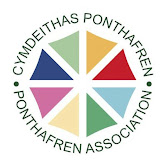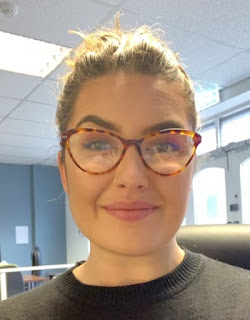For our final post this 2022 we find out more about the impact of Ponthafren’s One to One Recovery Project from a recent client.
Where do I start? Maybe a bit of background?
In 2019 I was diagnosed with a Traumatic Brian Injury (TBI) and advised to medically retire by the Neuropsychologist. I didn’t feel ready at that time and the Neuropsychologist himself retired leaving me to negotiate my diagnosis and progression myself.
Fast forward to 2021. Having worked through the pandemic as a Diabetes Specialist Nurse, providing support and training to staff as well as initiating new protocols and treatments, I was finding things more and more difficult. I was feeling the effects of my TBI and was afraid of making a mistake or killing a patient.
At the age of 55, having worked as a nurse for 26 years, I made the difficult decision to retire and in December 2021 I was awarded a Level 2 medical retirement on 31.12.2021. This had two effects. First, it confirmed I had made the right decision but secondly, it also meant that I was no longer a nurse, had no purpose and no support to help me navigate the TBI effects and how my life was changing. I was a failure.
During early 2022 I was struggling to obtain my pension from the NHS due to a previous employer who had not completed the appropriate paperwork. I was unaware of any benefits I was entitled to, and I was also unable to navigate the communication with the pensions department, ex-employer, etc, due to my poor cognitive abilities and labile emotions. (Basically, I just fell apart when trying to talk to anyone).
After 3 months of trying to navigate everything on my own my mental health had deteriorated to such an extent that I thought the world would be a better place without me in it. I had nowhere to go and no one to turn to for advice or support. The Neuropsychologist was never replaced in our area, and whilst the GP was supportive he was unable to provide any help. I couldn’t talk to my family as I didn’t want to be a burden. I cried if anyone talked to me, I felt a failure and worthless, I didn’t know how to negotiate my own life, who I was or who I wanted to be. I was withdrawn, lonely and felt a failure.
I was aware of Ponthafren, the mental health charity in North Powys, as I had provided some training there in the past. However, I really didn’t feel they were for me as I had some preconceived ideas as to the clientele. I certainly wasn’t sure what they could do - if anything - to help me, but I had to try something or I would not have been able to go on.
So I contacted Ponthafren and within a few weeks they had offered me an appointment to discuss my needs and see if they could offer support. I wasn’t hopeful! Then I met my One to One Recovery Worker. I don’t think I got through the first few meetings without being a complete mess! Crying, unable to find the words I needed and being withdrawn.
After 3 months of trying to navigate everything on my own my mental health had deteriorated to such an extent that I thought the world would be a better place without me in it. I had nowhere to go and no one to turn to for advice or support. The Neuropsychologist was never replaced in our area, and whilst the GP was supportive he was unable to provide any help. I couldn’t talk to my family as I didn’t want to be a burden. I cried if anyone talked to me, I felt a failure and worthless, I didn’t know how to negotiate my own life, who I was or who I wanted to be. I was withdrawn, lonely and felt a failure.
I was aware of Ponthafren, the mental health charity in North Powys, as I had provided some training there in the past. However, I really didn’t feel they were for me as I had some preconceived ideas as to the clientele. I certainly wasn’t sure what they could do - if anything - to help me, but I had to try something or I would not have been able to go on.
So I contacted Ponthafren and within a few weeks they had offered me an appointment to discuss my needs and see if they could offer support. I wasn’t hopeful! Then I met my One to One Recovery Worker. I don’t think I got through the first few meetings without being a complete mess! Crying, unable to find the words I needed and being withdrawn.
Over time my One to One Worker helped me to navigate the pensions; she also spoke/emailed the ex-employer and helped support me to apply for benefits. She gave me the reassurance that I was not beyond help and provided emotional as well as practical support. I could not have done it without her.
Through my One to One Worker’s support and encouragement I was able to access some counselling and to attend a gardening group. Initially being part of the group was difficult. I was unable to concentrate fully on what was happening as I struggled in a group, especially if more than one person was talking. I was unable to keep up with processing the information and I felt I didn’t belong. Also I cried… a lot! But I persevered.
When we transferred to volunteer at another large local garden overseen by a charity I couldn’t even get out of the car! I couldn’t work out how to park…. I didn’t know how to find the toilets. I didn’t know anyone and felt out of place. Every time I saw one of the other volunteers I broke down and cried, but still I persevered.
Slowly, with encouragement, I was able to attend other groups and not fall apart. I still have mini meltdowns and get fatigued, and my emotions overwhelm me on occasion, but I now have a purpose. I feel welcomed by all at Ponthafren and would be lost without them.
Fast forward 9 months
I am now a regular volunteer with Ponthafren. I also attend Mindfulness once a month, Singing for Well-being on a Tuesday, Yoga on a Wednesday, and Gardening on a Thursday.
Recently I was asked to facilitate the gardening group to enable it to carry on as Adult Learning Wales were unable to continue providing support. I didn’t think I could do it, but with the encouragement and support I have received, and continue to receive, I have become a volunteer for the charity’s garden as well as for Ponthafren. I can converse with the group effectively; I have attended meetings with regards to the group, and although there were a few teething problems initially I feel I am now able to steer the group and help it to grow for other members of Ponthafren and people just like me because of my One to One Worker and the rest of the team at Welshpool.
Don’t get me wrong, I still have meltdowns and cry on occasion, but I am generally better able to recognise when I need to step away and when I need to ask for help from others. This is without doubt a definite growth for me. I have a purpose, I have somewhere that people ‘see me’ and accept me for all my faults along with some strengths that I have been able to develop along this journey.
I really can’t put into words how much finding Ponthafren has helped me and changed my life this year. If it wasn’t for my One to One worker and the amazing team at Welshpool, I wouldn’t be here in December 2022.
I hope to be able to continue to give back to Ponthafren and be an asset to them, to be able to help and support others in my own slightly broken way as a volunteer. Ponthafren is for everyone who needs a little support or has been a little bit damaged just because of life! If I could change one thing it would be the misguided pre-conceptions that some people have, myself included, around what Ponthafren is, who it can help and what they can offer. I sing their praise from the roof top when able and have pointed a couple of people in their direction already.
Finally, I would like to say THANK YOU, you really do not know how you have saved me and enhanced my life. Keep doing what you all do so well.
Finally, I would like to say THANK YOU, you really do not know how you have saved me and enhanced my life. Keep doing what you all do so well.
%20with%20logo.jpg)
.jpg)
.jpg)
.jpg)
.jpg)

.jpg)
.jpg)
%20edit.jpg)
.png)






.jpg)



.jpg)






.jpg)
.jpg)
.jpg)
.jpg)
.jpg)

.jpg)
.jpg)




.jpg)
.jpg)
.jpg)
.jpg)
.jpg)
.jpg)
.jpg)
